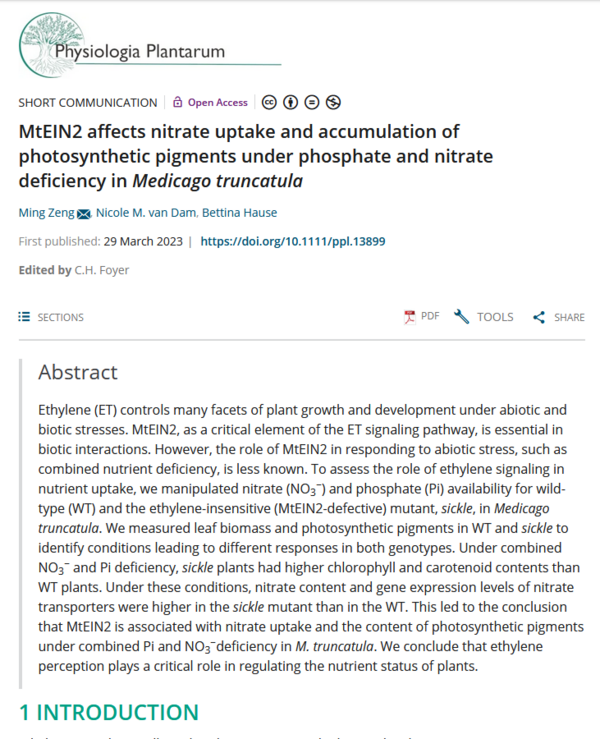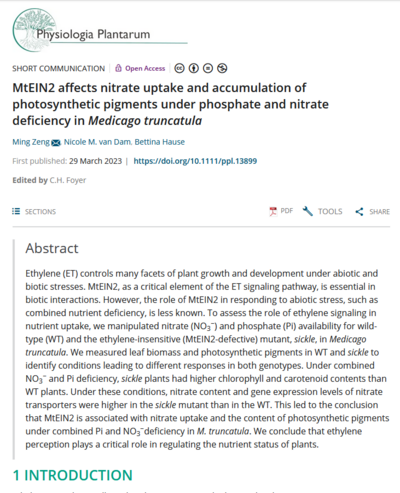Ethylene plays a role in nutrient deficiency.
Ethylene, as a volatile phytohormone, controls many facets of plant growth, especially under stress conditions. In Medicago truncatula, the protein MtEIN2 plays an important role in ethylene signaling during biotic stress. The role of this factor in abiotic stress, such as nutrient deficiency, was not known until now. Together with Bettina Hause, iDiv scientists have now addressed this issue and written a Short Communication article on the subject. For this purpose, the team exposed both the wild type and an ethylene-insensitive MtEIN2-deficient mutant of Medicago to a combined nitrate and phosphate deficiency and subsequently monitored leaf biomass and the amount of photosynthetic pigments. Results showed that the mutants had higher chlorophyll and carotenoid contents than the wild-type plants. The expression of nitrate transporters and correspondingly the nitrate content were also higher in the mutants compared to the wild type. Thus, in Medicago truncatula, MtEIN2 and the phytohormone ethylene also play an important role in the perception of nutrient scarcity, the scientists concluded.
Nitrogen and phosphorus are the most important macroelements for plants. Both in nature and in agriculture, plant growth is often limited by the availability of these two elements. However, fertilizing the soil with nitrogen and phosphate fertilizers can lead to eutrophic waters and other environmental problems. A better understanding of how plants respond to reduced availability of these two major nutrients is therefore of great importance for future breeding and crop protection projects.



